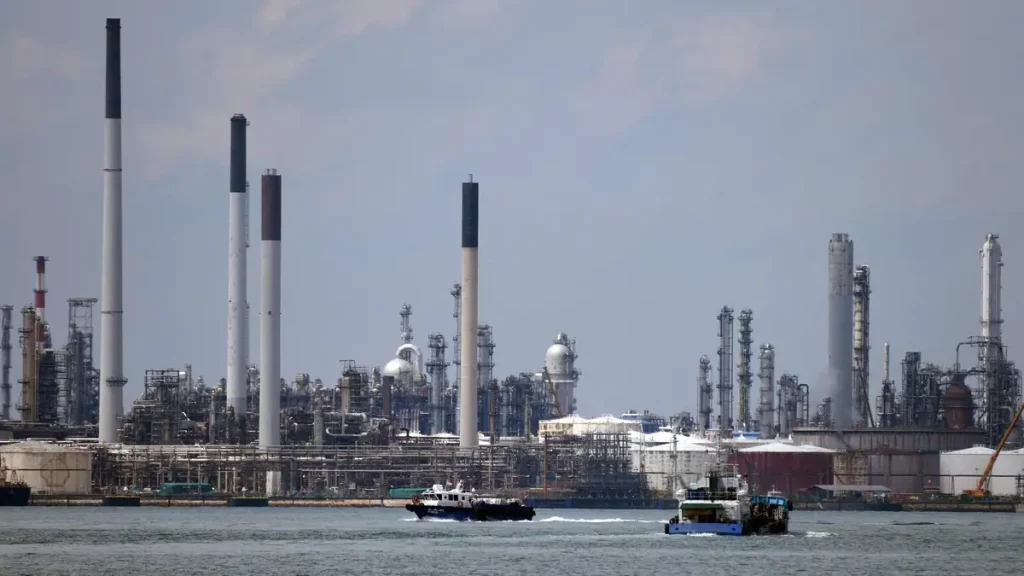
Oil prices rose more than 7% on Monday as both the European Brent and the American WTI crossed the $ 110 level per barrel, as Russia is likely to impose European sanctions on oil exports.
Brent rose 7.12% to $ 115.62 a barrel from the North Sea for delivery in May, hitting a ten-day high.
West Texas Intermediate (WTI), the benchmark American variety for delivery in April, rose 7.08% to $ 112.12 a barrel, rising above $ 110 for the first time in nearly two weeks.
The European Union’s foreign and defense ministers met in Brussels on Monday to discuss new sanctions on Moscow.
With his arrival, Irish Foreign Minister Simon Coweny said Russia was “open” to the possibility of restrictions targeting the energy sector, which had so far been relatively avoided. He explained that depending on the situation in Ukraine, it would be appropriate to “disrupt the normal trade” of oil and natural gas with Russia.
He echoed Ukrainian President Volodymyr Zhelensky’s call on Monday for the European Union to reject energy resources from Russia.
“The question of oil sanctions is not whether we want it or not, but how much we rely on this oil,” his German counterpart, Annalena Berbach, replied.
Germany and the Netherlands, the EU countries most dependent on Russian supplies, receive an average of 1.1 million barrels a day between them.
The Kremlin had earlier warned on Monday that potential EU sanctions on Russia’s oil would affect “everyone” and that the European Union was ready to study the possibility of new sanctions against Moscow at a conference.
Stephen Innes of SPI Asset Management confirmed that the possibility of “additional sanctions on Russia, already being applied by Western buyers” is a “huge risk” and could push up prices further.
“I think the whole EU is hard to accept,” said James Williams of WTRG Economics.
For Andrew Lebo, a partner in the company’s Commodity Research Group, only a further marked decline in the controversy would “probably move the Germans” on the issue.
According to sources, total EU sanctions will cause Russia to lose 2.5 to 3 million barrels of outlets per day and Europe to lose a quarter of its black gold requirements.
“It will not be replaced overnight,” Andrew Lebo warned. “It will take time and, at this point, the stocks are already very low.”
The ban, or the melting of Russian oil deliveries to Europe, is already in the works, with government officials, private companies and shippers often trying to avoid contact with them for fear of being severely reprimanded or reprimanded.
Due to this phenomenon there are currently less than half a million barrels, and according to Andrew Lebo, Europe volumes will fall from one million to 1.5 million barrels per day in April.
“Demand for oil from other OPEC + countries will increase,” said Susanna Street, D. ‘
“But the problem is, they are not already at today’s level,” she added, recalling that in February OPEC + lost more than a million barrels per day of its production target.
Saudi Arabia, the world’s largest crude oil exporter and leader of OPEC, warned on Monday that its supply was at risk due to insurgent attacks in neighboring Yemen on its oil installations.
The country on Sunday announced a “temporary cut” in oil production at one of the facilities of giant Aramco, which was hit by an attack by Houthi rebels in Yemen.
The Houthis have launched several overnight drone and missile strikes on targets in Saudi Arabia, the country leading a military coalition in Yemen that has been supporting power against Iran-backed Houthis since 2015.
“Saudi Arabia is not responsible for the shortage of oil supplies in world markets in the light of attacks on its oil fields,” the foreign ministry said.
“This attack is another unfortunate reminder of the uncertainty currently affecting global oil markets,” said Michael Hewson, CMC Markets analyst.





More Stories
Sportswear: Lolle acquires Louis Garneau Sports
REM is still innovative enough to foot the bill
A trip to the restaurant with no regrets for these customers